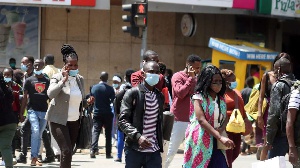Kenya’s economy will contract by between 1 percent and 1.5 percent this year, as concerns of a second wave of Covid-19 raises uncertainty over the country’s economic recovery.
Economic and social disruptions induced by the Covid-19 pandemic have eroded progress in poverty reduction in Kenya, forcing an estimated two million more into poverty, according to the World Bank’s 22nd report of the Kenya Economic Update, Navigating the Pandemic.
The report, published on November 25, is calling for more long-term policies and investments that focus on job creation to tackle the growing rate of extreme poverty.
Households have been hit hard due to reduced job opportunities and lower earnings. Unemployment almost doubled compared with pre-Covid levels. Remittances have reduced and only a few households have benefited from direct cash assistance.
"Kenya had made considerable progress with poverty reduction over the years, but Covid-19 has destroyed the livelihoods of many Kenyans, pushing an estimated two million people into poverty," said Utz Pape, senior economist in the Poverty and Equity Global Practice of the World Bank.
The government has also recorded a sharp decline in tax revenues due to the weakening in economic activity, and tax relief, and an increase in Covid-19 related spending needs. The fiscal deficit has widened, and debt vulnerabilities have also risen.
Kenya's fiscal deficit widened to 8.2 per cent of gross domestic product, up from the pre-Covid budgeted target of 6.0 per cent; the country’s debt-to-GDP ratio has risen to 65.6 percent as of June, up from 62.4 percent in June 2019.
"There is a need to deploy both fiscal and monetary policies to support the healthcare system, protect the most vulnerable households, and support firms to help preserve jobs, incomes and the economy's productive potential," said World Bank country director for Kenya Keith Hansen.
Africa Business News of Friday, 4 December 2020
Source: theeastafrican.co.ke

















